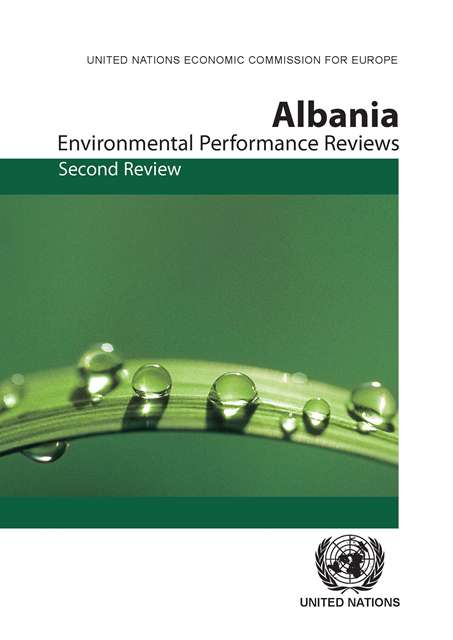
Air pollution, municipal solid waste management and access to clean water and improved sanitation remain the most pressing challenges for Albania according to the second Environmental Performance Review of Albania, published today. The Review, performed by the United Nations Economic Commission for Europe (UNECE), takes stock of progress made by the country in the management of its environment since the country was first reviewed in 2002.
The Review covers 10 issues of importance to the country related to environmental policymaking, planning and implementation, financing of environmental policies, waste and water management, biodiversity conservation and the integration of environmental concerns into energy and health policies.
The Review notes that during the period covered Albania’s economy has performed well. Reforms on infrastructure development, tax collection, property law and business administration since 2003 have paid off. The country has experienced a sustained economic growth since 2000 and the annual average gross domestic product (GDP) growth rate from 2003 to 2010 was 4.8%.
The 44% increase of the GDP from 2003 to 2010 improved markedly the living standards of Albanians, diminishing the share of population living below the poverty line from 25.4% in 2002 to 12.4% in 2008.
In spite of these achievements and progress made in several environmental areas, however, the country is still facing serious challenges related to pollution and weak environmental infrastructures.
Ambient air pollution poses serious health risks to city dwellers. Air quality levels for Tirana are more than twice in excess of the World Health Organization Air Quality Guidelines, and it is estimated that each year 500 deaths in the city can be attributed to air pollution. With the dramatic increase in the number of cars, and the number of old vehicles in use, traffic in urban areas is now a major cause of air pollution.
Waste management is at a low level. Systems for the collection of municipal solid waste are provided in most cities and towns, but not in rural areas. It is estimated that about 65 large and numerous small uncontrolled dumpsites are currently in operation in Albania.
Despite being naturally rich in water, Albania suffers from a lack of freshwater in sufficient quantity and quality. Only some 60% of the population has access to a centralized system of drinking water supply. Most of the existing water utilities are not able to cover operating costs. Water supply infrastructure is inadequate and poorly maintained. Together with a lack of metering and operational control, this is resulting in significant water losses, estimated to be more than 60% in all cities.
Only 40% of the urban population is connected to a sewerage system, and just a small proportion of the rural areas with piped water supply are equipped with sewer networks. There is only one wastewater treatment plant in the country with a capacity to serve 25,000 citizens.
The Review concludes with a set of 47 recommendations to the country to improve management of its environment, to better integrate the goals of sustainable development into sectoral policies, to promote greater accountability to the public and to strengthen cooperation with the international community. The recommendations were approved by the UNECE Committee on Environmental Policy.
The Review and its highlights are available online at http://www.unece.org/index.php?id=31558
For more information on the EPR Programme, please visit: http://www.unece.org/env/epr or contact [email protected].
Note to editors
In 1993, at the Second “Environment for Europe” Ministerial Conference, ministers requested UNECE to undertake Environmental Performance Reviews in countries that were not Organization for Economic Cooperation and Development members. By 2004, the first cycle of reviews was completed (with the exception of Turkmenistan). UNECE is now finalizing the second round of Reviews, taking stock of the progress made since the first review, and putting particular emphasis on implementation, integration, financing and the socio-economic interface with the environment.
At the seventh “Environment for Europe” Ministerial Conference in Astana in September 2011, ministers invited UNECE to conduct the third cycle of Reviews, which may additionally look at environmental governance and financing in a green economy context, countries’ cooperation with the international community and environmental mainstreaming in priority sectors.

